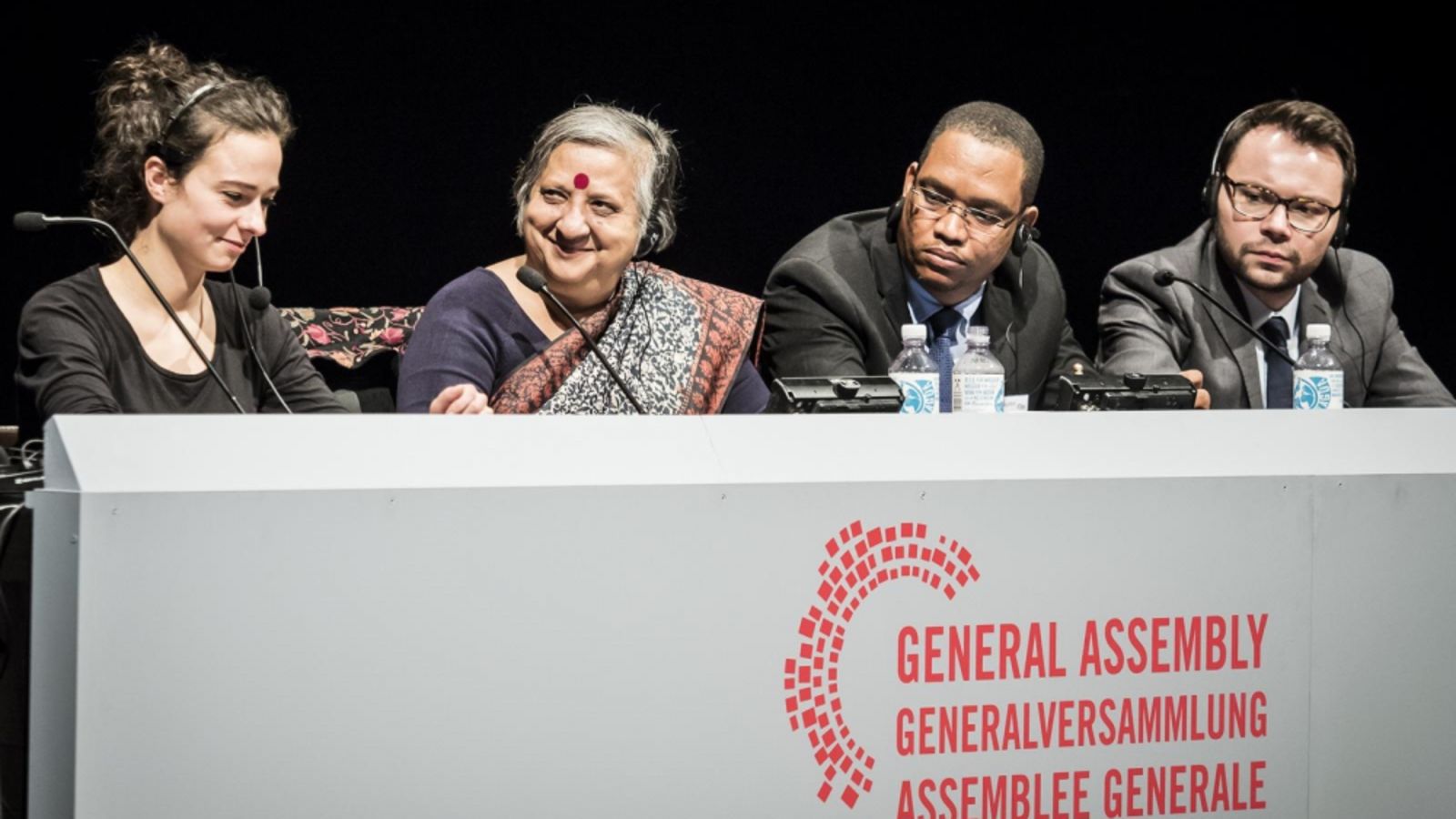
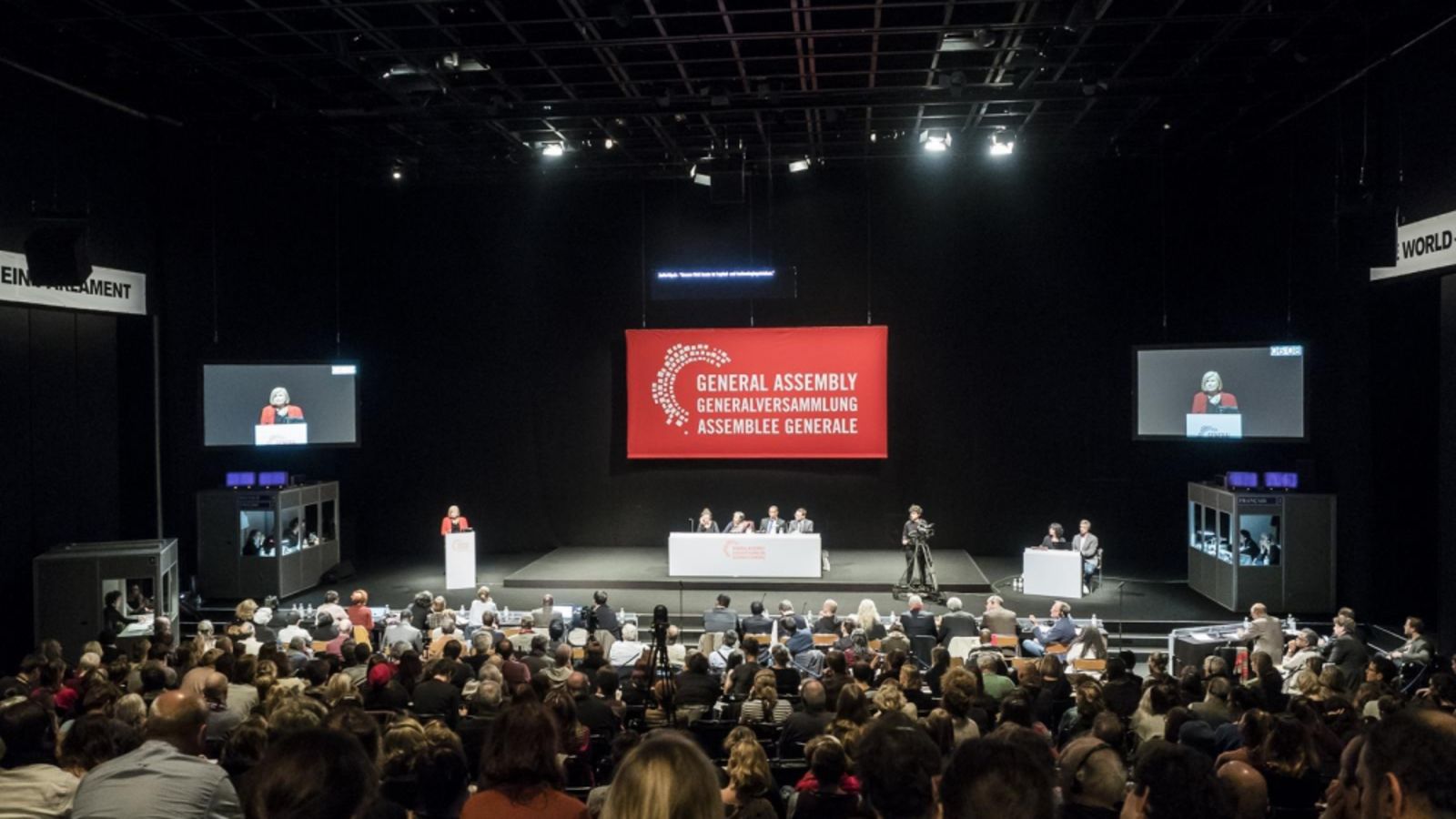
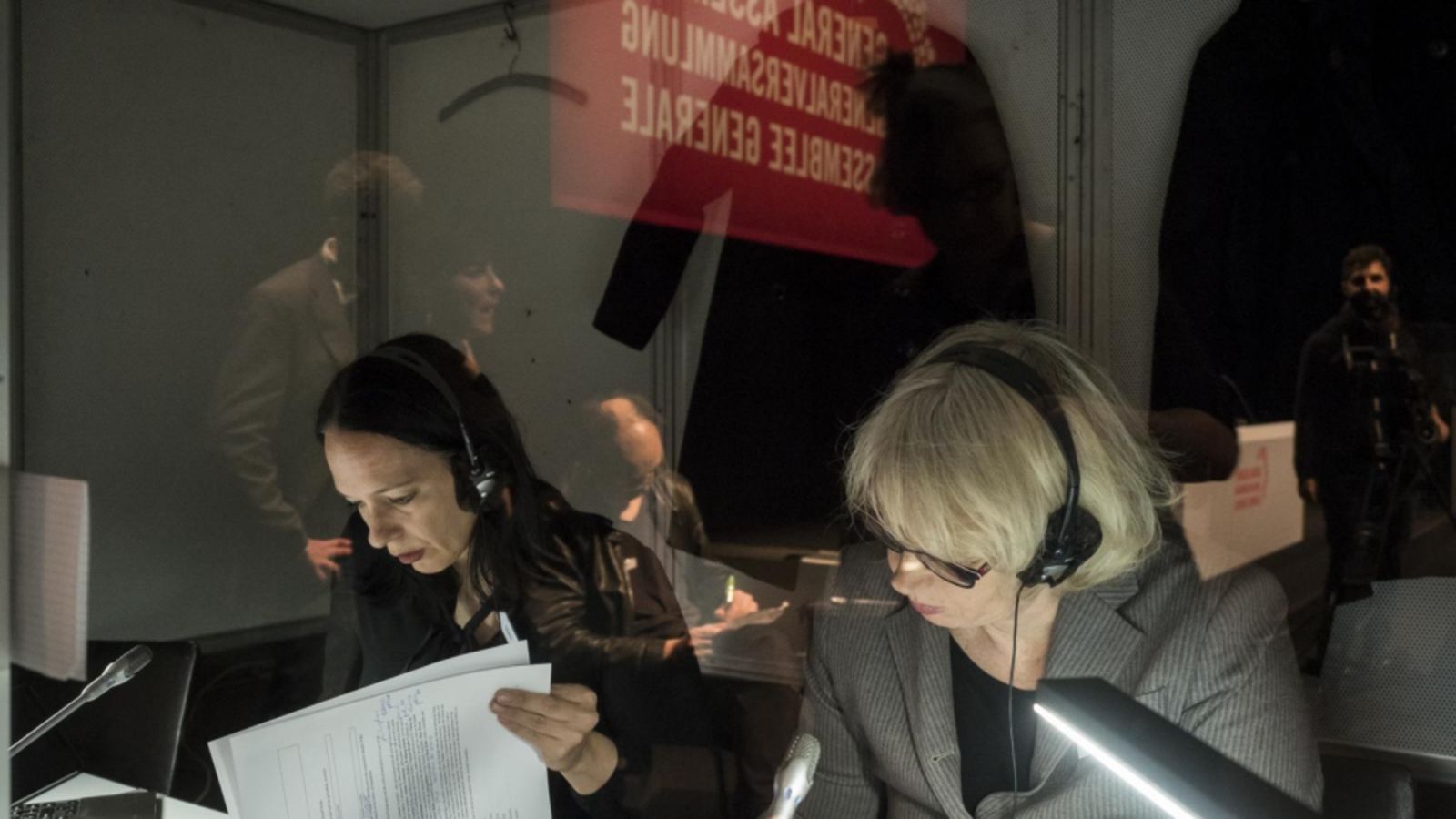
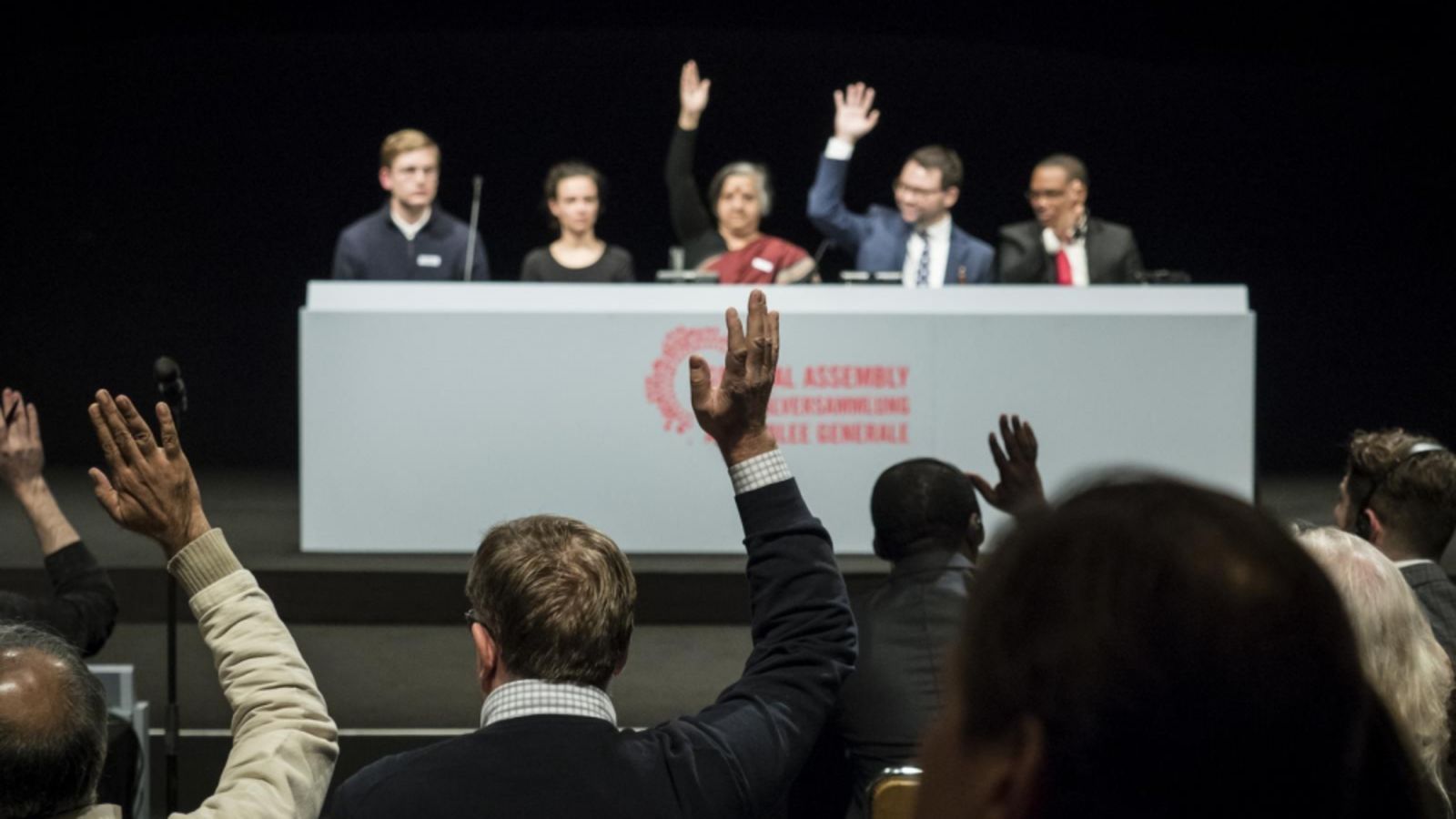
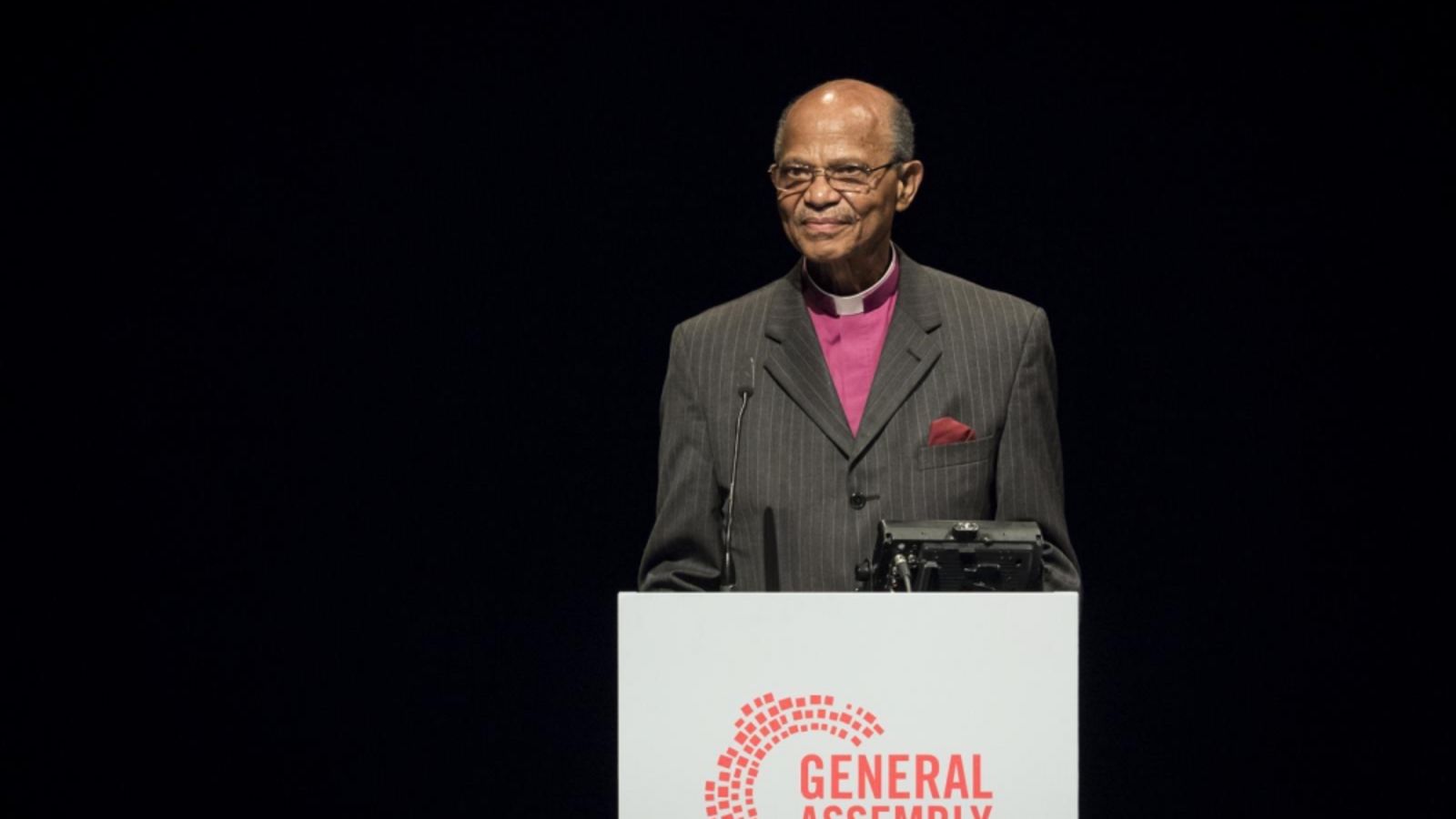
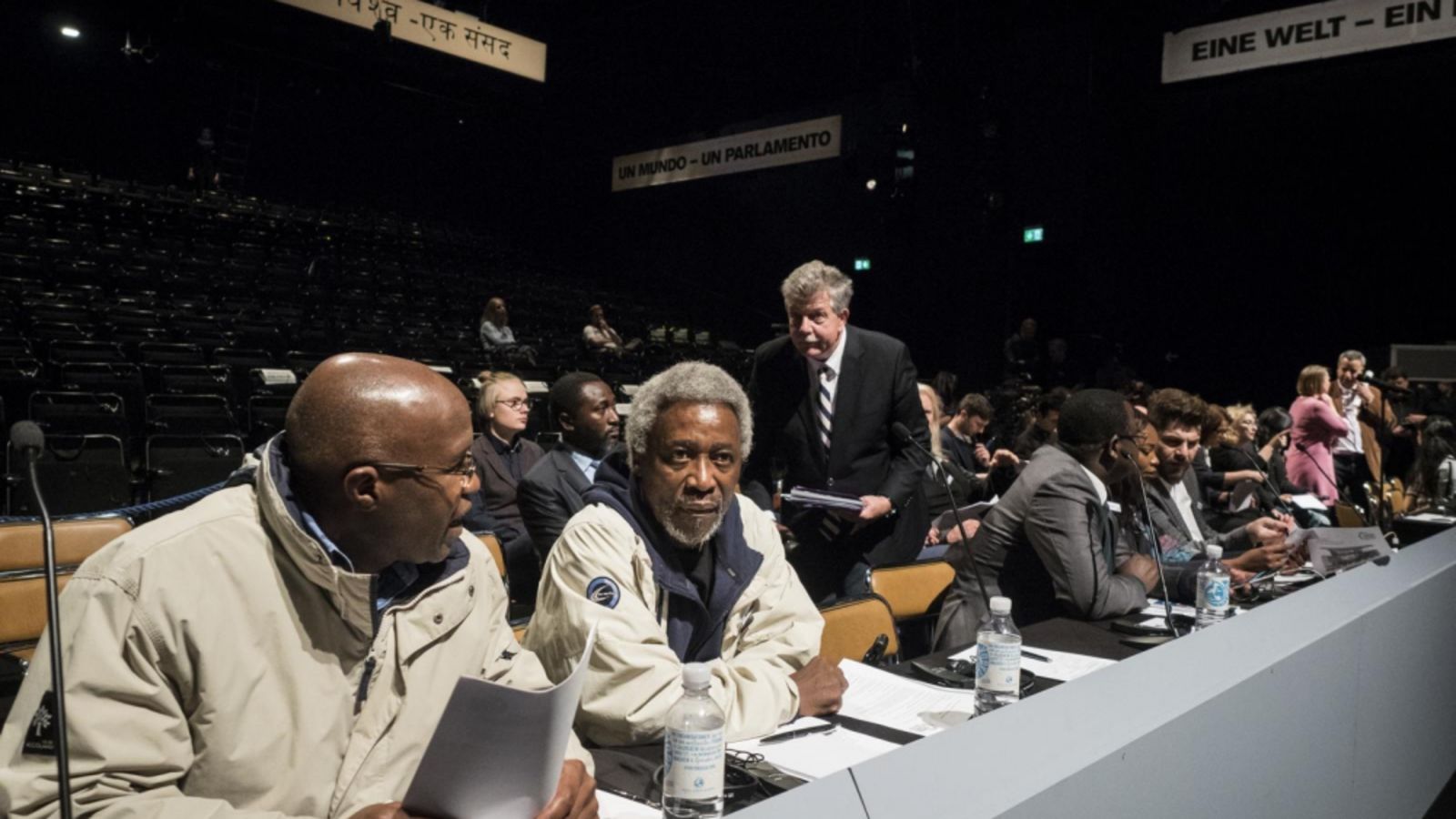
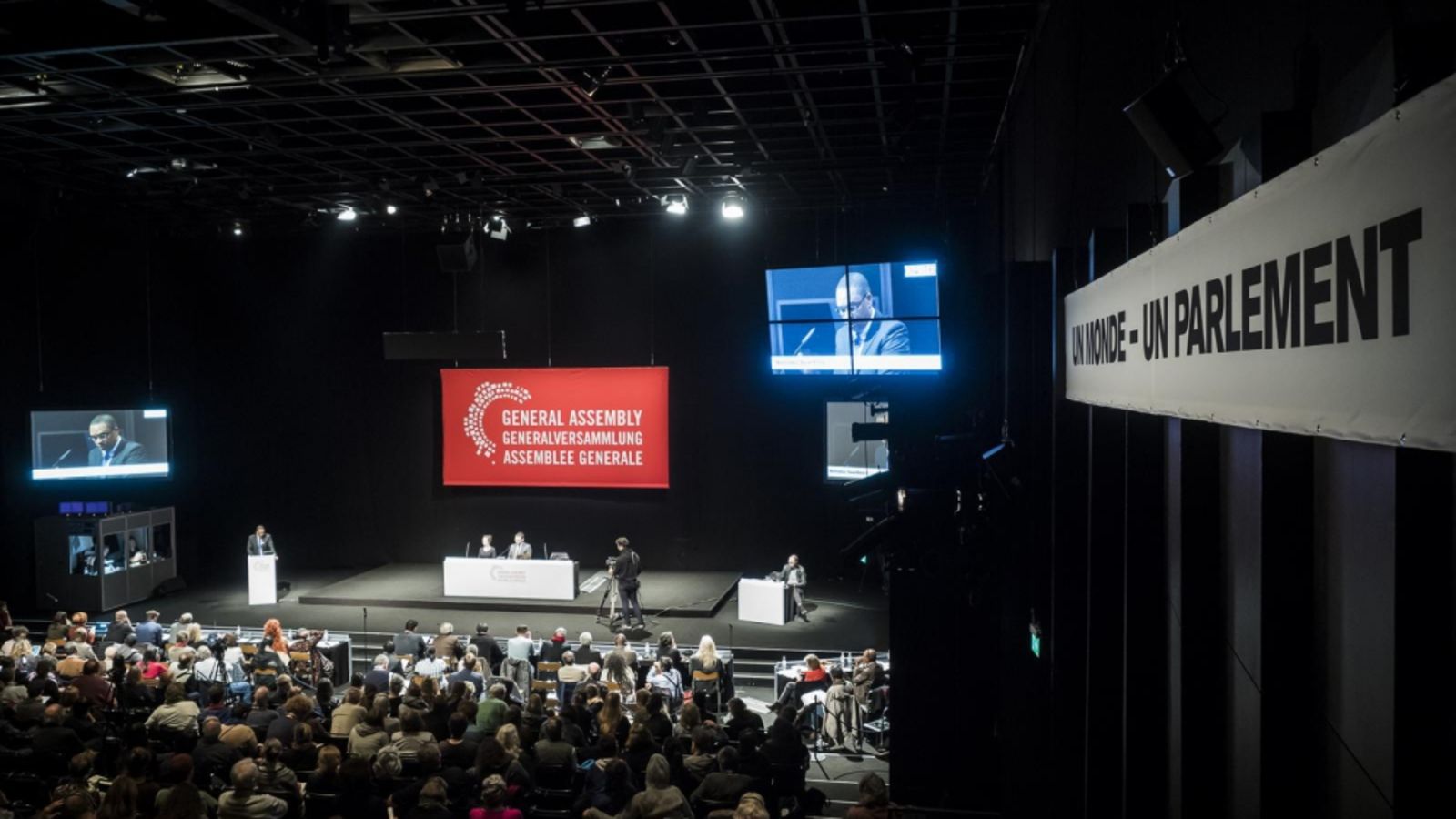
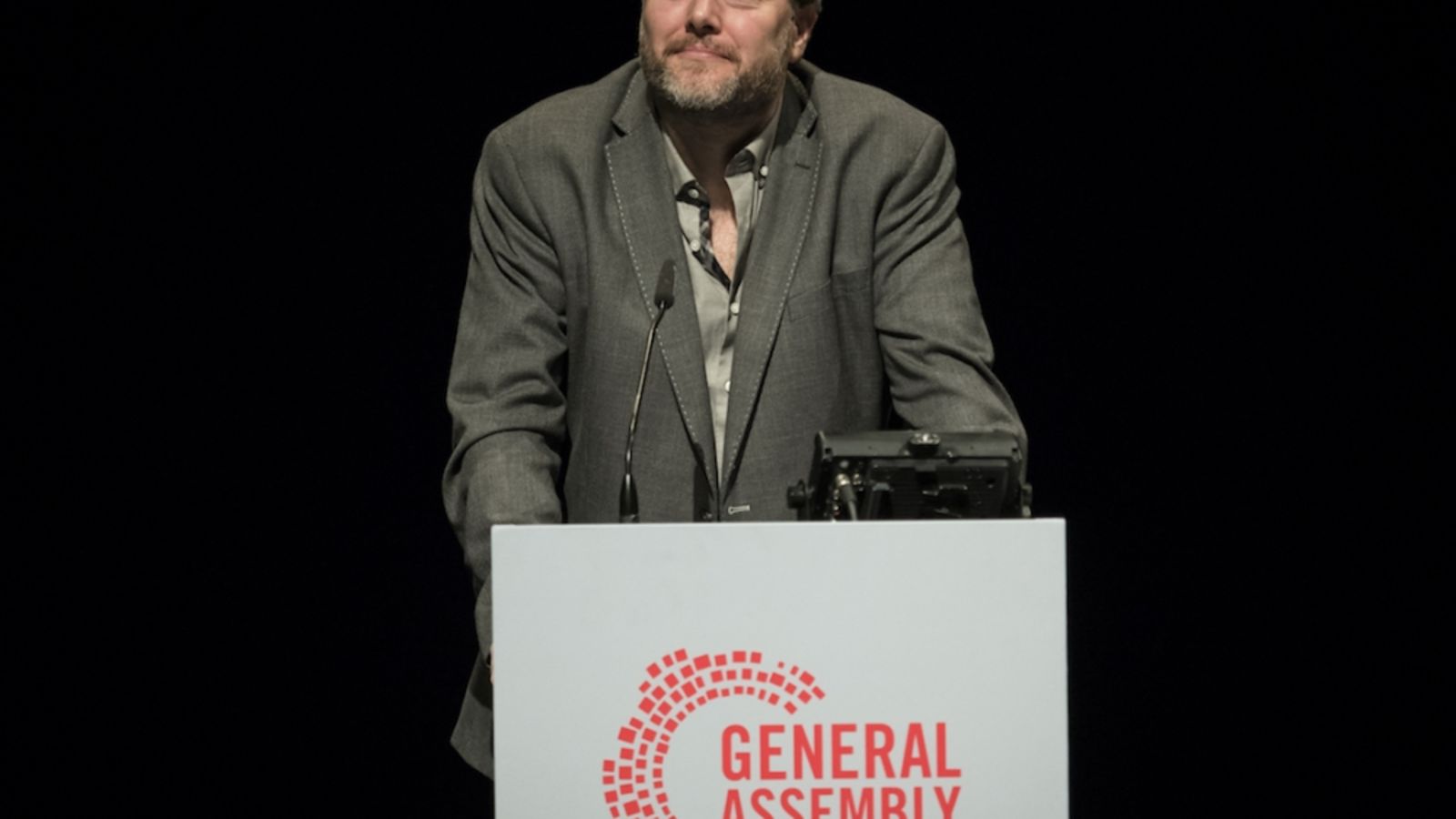
General Assembly: 1st Plenary Session – Diplomatic Relations, Sanctions and Wars
by Milo Rau / IIPM
Ever since the establishment of the United Nations and the ratification of the Charter for the Maintenance of World Peace, the Uphold of International Law and the Protection of Human Rights, there has been a debate about if and when military interventions or economic sanctions are necessary. Subsequently, this raises the question of whether diplomatic relations with authoritarian governments or terrorist regimes should be maintained. It also still seems highly questionable if the delivery of arms to conflict areas is permissible or if convicts should be extradited to other countries. In the »General Assembly«, the people affected will debate and decide on these transnational issues: war victims, supporters of governments subjected to diplomatic criticism as well as their opponents, victims of crimes against humanity as well as convicts.
Representatives: Huda Abuzeid (Libyan democracy activist), Dogan Akhanlı (writer of Turkish origin), Anwar al-Bunni (attorney, critic of the Assad regime), Winfried Hempel (attorney, former resident of the Colonia Dignidad) Sami Miaari (liberal economist, Tel Aviv University), Tugrul Selmanoglu (AKP supporter), Ala’a Shehabi (activist against surveillance), Ali Ertan Toprak (chairman of the Kurdish Community Germany) et al.
LIVESTREAM
General Assembly
There are no democratic structures on a global level, which can regulate the world market, prosecute violations of international law, or direct ecological developments into the right channels. The »General Assembly«, which will be convening 60 representatives from all over the world in Berlin, is filling this gap with its concept of an actual world parliament. In five plenary sessions, the representatives of the »General Assembly« will debate on where we stand as a global community and what needs to be done − socially, ecologically, technologically, politically. What does political sovereignty mean in the age of globalization? How do the interests of the world’s population relate to the democratic principles of the national states? Whose demands for independence, dignity, and happiness can become the demands of all mankind? A local parliament will be replaced by a global parliament, which will urge the members of the newly elected German government to join them. The first world parliament in the history of mankind, which will be accompanied by a group of international political observers, will conclude with the passing of the »Charter for the 21st Century«.
Programme
Friday, 3 November, 19–21h: Constitutive Session
Saturday, 4 November, 10–13h: 1st Plenary Session – Diplomatic Relations, Sanctions and Wars
Saturday, 4 November, 13.30–16.30h: 2nd Plenary Session – The Regulation of Global Economy
Saturday, 4 November, 17–20h: 3rd Plenary Session – Migration and Border Regime
Sunday, 5 November, 10–13h: 4th Plenary Session – Cultural Global Commons
Sunday, 5 November, 13.30–16.30h: 5th Plenary Session – Natural Global Commons
Sunday, 5 November, 17–19h: Closing Session
Admission: every session 5 Euro (reduced 2,50), combined ticket for all 7 sessions: 25 Euro
The General Assembly will be broadcasted live to Brussels (Théâtre National Wallonie-Bruxelles), Gent (NTGent), Hamburg (Thalia Theater), Munich (SPIELART Festival) and Paris (Théâtre Nanterre-Amandiers).
Further information and live streaming of all plenary sessions at www.general-assembly.net
On 3, 4, 5 November 2017
The »General Assembly« is a production of the IIPM – International Institute of Political Murder in collaboration with the Schaubühne am Lehniner Platz, sponsored by the Federal Cultural Foundation, the multi-sector funding Berlin of the Senate Department of Culture and Europe and the Federal Agency for Civic Education and supported by ECCHR – European Center for Constitutional and Human Rights, medico international, Rosa Luxemburg Foundation and Rainforest Rescue.
In collaboration with Agit Polska, Bahrain Watch, Berlin Postkolonial, Club der polnischen Versager, German Network and Coordination Office Against Trafficking In Human Beings (KOK), Diem25, European Alternatives, FUTURZWEI, Germanwatch, Society for Threatened Peoples, Heinrich Böll Foundation, ADEFRA (Initiative of black women in Germany), ISD – Initiative of Black People in Germany, int.ie, Campaign for a United Nations Parliamentary Assembly / Democracy Without Borders, Kinder- und Jugendparlament Tempelhof-Schöneberg, Kurdish Community Germany, Oficina Precaria Berlin / 15 M, Open Knowledge Foundation Deutschland, Plough Back The Fruits - basflonmin.com, PowerShift, Reporter ohne Grenzen, RomaTrial, Tierfabriken Widerstand, Urgewald, Voix des Migrants, Welthungerhilfe u. v. a.
